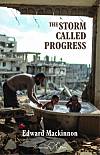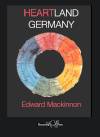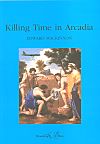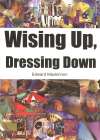SHIBBOLETH
Together with my stones,
heavy with weeping
behind the bars,
they dragged me
to the very middle of the market,
the place
where the flag unfurls
to which I would swear no oath.
Flute,
double-flute of the night:
think back to the dark
twin redness
in Vienna and Madrid.
Set your flag at half-mast,
memory.
At half-mast
today and for ever.
Heart:
here too reveal yourself,
here in the midst of the market.
Call it out, the shibboleth,
into the foreignness of your homeland:
February. No pasarán.
Unicorn:
you know of the stones,
you know of the waters,
come,
let me lead you away
to the voices
of Extremadura.
Art has always been used for political ends. This is particularly evident in certain historical situations. During the Cold War the CIA, through organisations such as the Congress for Cultural Freedom, promoted and fostered abstract painting. The U.S. public as a whole may not have cared for the American Abstract Expressionist art of Jackson Pollock, Robert Motherwell, Willem de Kooning and Mark Rothko, but for the CIA it was proof of the intellectual freedom and creative power of the United States. It was “free enterprise painting” (Nelson Rockefeller) that would win the cultural Cold War against the Soviet Union’s socialist realism.
In the same way, in post-war West Germany, which was at the epicentre of the Cold War, the arbiters of literary taste championed poetry that was “difficult” and above all unpolitical, as a counterweight to the Brechtian poetic tradition that was dominant in East Germany. Paul Celan was seemingly the archetype of the kind of poet favoured in the West. Seemingly.
Paul Celan [Paul Antschel] was born in 1920 into the small German-speaking Jewish community in Cernauti [German: Czernowitz] in the Bukovina region, then part of Romania [now part of Ukraine] and earlier part of the Austro-Hungarian empire. Like his closest friends, he had been drawn towards socialism/communism as a young man, but not long after the Second World War – in which his father had died of typhus and his mother had been killed following deportation during the Nazi occupation and he himself had narrowly escaped death in a labour camp – he left Romania for Vienna and shortly thereafter moved to Paris, where he spent the rest of his life, receiving French citizenship in 1955. He earned his living as a translator and lecturer in German.
Celan, who never lived in Germany and only briefly lived in a German-speaking country, and who must have spoken Romanian and probably some Hebrew and Yiddish and later spoke French and was familiar, through translating poetry, with several other European languages, notably Russian, was a “German poet”, doomed, he might have said, to write in his mother tongue.
Initially his poetry, though symbolist rather than realist, was fairly traditional. His reputation was made by the poem ‘Death Fugue’ (Todesfuge). It has been called “the Guernica of post-war European poetry”, probably the most powerful poem ever written on the Nazi death camps, conveying the horror of the subject-matter through arresting metaphors (“black milk of daybreak”, “we shovel a grave in the air”), rhythmical, incantatory repetition and allusions to Jewish and German culture.
‘Death Fugue’ quickly became one of the most anthologized German poems of the 1950s and early 60s and a standard item in German school text books. Strangely, this was by no means to Celan’s liking. In fact after a while he refused permission to use the poem in anthologies. There were probably three reasons. The poem was in a more or less traditional style, one which Celan soon moved away from. Celan did not want to be pigeonholed as a “Holocaust poet”. And perhaps most important, Celan was angered by the way in which critics and educationalists in West Germany – where to his dismay the old Nazis had been eased back into positions of authority and power (“something rotten in the state of the D-mark”, as Celan put it) – focused attention almost exclusively on the poem’s formal aspects while ignoring its subject-matter.
Celan’s dissatisfaction with the poem and with the way in which it was used led him towards a more indirect mode of expression. Although Celan denied that his subsequent poetry was “hermetic”, it was certainly not easily accessible. Lapidary, using obscure metaphors and neologisms and marked by a difficult-to-follow search for paradox, it is frequently described as almost untranslatable (though this has not prevented the appearance of an ever-growing number of translations).
However, before his poetry moved in that direction, Celan wrote the poem Shibboleth. His letters at the time when this poem was written, in the early 1950s, show that he clearly wished to distance himself from the West German literary and political establishment. (His alienation from the literary scene in the Federal Republic was soon to be heightened by the attention which sections of the West German media gave to unjustified charges of plagiarism made against Celan by Claire Goll, the widow of the French-German poet Ivan Goll.)
The first stanza of Shibboleth refers to Celan’s past, his own and his parents’ labour camp experience and the associated trauma. The market place and flag of the second stanza may be presumed to refer to West Germany. Stanzas three and four recall significant historical defeats at the hands of fascism, reiterated in stanza five: the workers’ uprising in Vienna in February 1934 and the Spanish Civil War, with its slogan or shibboleth (a cultural touchstone according to its Biblical origins, here a political touchstone) No pasarán, which the poet calls out in his permanent exile. The Spanish Civil War is evoked again in the last word of the poem, Extremadura, the scene of a large-scale massacre of the populace by the Francoists. The unicorn in the last stanza is a word rich in symbolism, but is also the name in German of Erich Einhorn, a close friend of Celan’s in his early years who emigrated to the USSR at the time of the Nazi occupation of Romania.
The poem Shibboleth bears witness to an anti-fascism that was political as well as emotional. Aesthetically, of course, Celan was in the “western” camp. He did not, for instance, share Brecht’s conception of poetry, which he considered to be too explicit. Looking back, I think we can say that Brecht and Celan exemplified two different strands of modernism, if that term is to have any real meaning. Unsurprisingly in today’s world, Celan’s poetry is probably more in vogue. It provides post-modernist and deconstructionist gourmets, quite apart from intrepid and sometimes foolhardy translators, with plenty to get their teeth into. His significance is beyond dispute, though I feel that exaggerated claims are often made for his poetry.
The word “waters” in Shibboleth foreshadows Paul Celan’s death. Troubled by the demons of his past and by manic depression, together with a sense of persecution in part caused by the false allegations of plagiarism made against him by Claire Goll, he drowned himself in the Seine in 1970.



